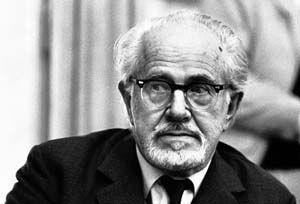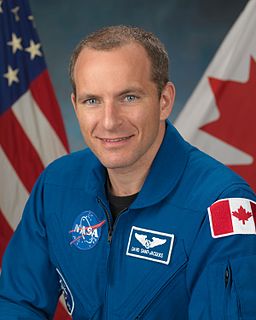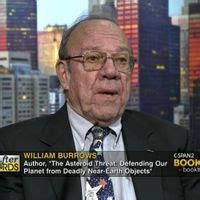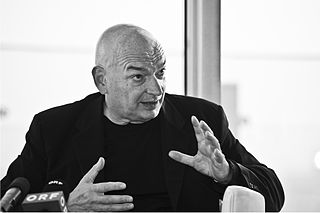A Quote by Kal Penn
What I love about L.A. and Washington, D.C. is that they're almost the opposite of each other. L.A. is a very creative space while D.C. is a very cerebral space. So, they're the ying and the yang in my world. I like them both for their own reasons.
Related Quotes
In 2009 I went up on the space shuttle. I was in space for 16 days and docked at the space station for 11 days. The entire crew did five space walks, of which I was involved with three of them. When you're doing a space walk, you always have a buddy with you. It's a very dangerous environment when you're doing a space walk.
Cooperating in something as visible as space exploration and space flight can only improve relations between the two countries because what happens is, you're working on a common project in a very visible light and so, you're motivated to not have conflicts with each other in other areas. And bringing up China is a good example. In the early '90's, China got serious about wanting to launch astronauts into space and they were actually quite successful in launching many communication satellites. They went ahead and in 2003 they launched their first astronaut into space.
The dimension that counts for the creative person is the space he creates within himself. This inner space is closer to the infinite than the other, and it is the privilege of the balanced mind... and the search for an equilibrium is essential - to be as aware of inner space as he is of outer space.
I wasn't frightened going to outer space. I'd been living this in my head for many, many years, so I sort of had played all of these scenarios of flying into space and seeing earth. I think I was very prepared for it. It was almost a completely joyful, very happy, very exciting experience, and I didn't have time or any desire to think about what things could go wrong.
In space, you can't see the borders. It doesn't look like a map. We're all like kids fighting in a sandbox, on the political and human side of it. The International Space Station was built in orbit. Each piece hurtled into space at eight kilometres per second. From an engineering point of view, it's madness. It's also a feat of policy - Russia, the U.S., Germany and Japan working together. Do you realize what that means? These countries were sending nukes to each other a generation ago. Space does that. It gives us that amazing big picture.
The question to ask is whether the risk of traveling to space is worth the benefit. The answer is an unequivocal yes, but not only for the reasons that are usually touted by the space community: the need to explore, the scientific return, and the possibility of commercial profit. The most compelling reason, a very long-term one, is the necessity of using space to protect Earth and guarantee the survival of humanity.
Photons come out of nowhere, they cannot be stored, they can barely be pinned down in time, and they have no home in space whatsoever. That is, light occupies no volume and has no mass. The similarity between a thought and a photon is very deep. Both are born in a region beyond space and time where nature controls all processes in that void which is full of creative intelligence.
R&D generally has been a bipartisan thing, because in the IT space, in the medical space, the U.S., the benefits to ourselves and the world and our economy have been very, very clear. I'm hopeful we can make a very strong case there. Energy is actually harder; it takes more time to get a product, but if you do it's a very, very big market and the constraints of doing that in a clean way are more obvious all the time.
And the fear of not being is born in that space. But in meditation, when this is understood, the mind can enter into a dimension of space where action is inaction. We do not know what love is, for in the space made by thought around itself as the me, love is the conflict of the me and the not-me. This conflict, this torture, is not love. Thought is the very denial of love, and it cannot enter into that space where the me is not. In that space is the benediction which man seeks and cannot find. He seeks it within the frontiers of thought, and thought destroys the ecstasy of this benediction.




































